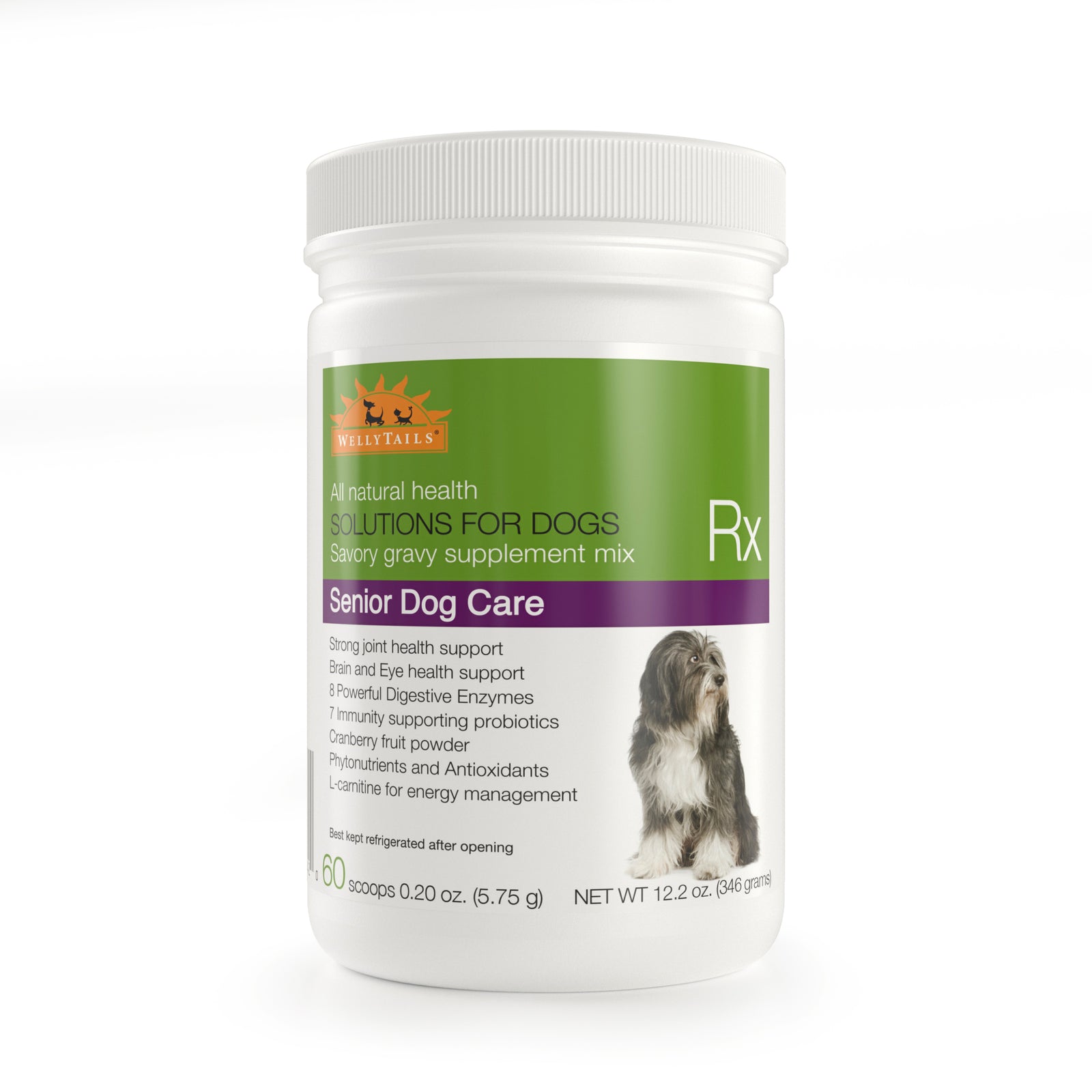What is Dog Arthritis?
Arthritis is a very common mainly age-related problem in senior dogs. It is estimated that one in four dogs in the United States are clinically diagnosed with some form of arthritis.
Arthritis literally means joint (arthros) inflammation (itis). It is an inflammatory condition affecting the joints. Although it is quite common among senior dogs, it can also develop in young animals as a result of injury, joint damage, or a defect in conformation. In dogs, arthritis usually affects the joints of the hip and elbow, causing pain, stiffness, and discomfort.
Unfortunately, no treatment can successfully fully reverse the symptoms of arthritis. Once a dog’s joint has been damaged, complete repair does not occur. But the good news is, some measures can be undertaken to delay the onset or progress of joint deterioration, minimize the symptoms, and reduce the severity of the problem.
What Are The Causes Of Arthritis?
Most cases of arthritis in senior dogs are brought about by age-related deterioration of the joint tissues with years of wear and tear. In young dogs, arthritis can develop as a result of problems related to bone and joint development. The problem may affect only one joint or several joints at the same time.
Arthritis occurs when the cartilage that lines a joint bones undergoes deteriorative changes. The damage to the cartilage causes the bones that make up the joint to touch and rub together. The abnormal rubbing of the bones within the joint can be caused by:
- Joint instability after the dog’s ligament has been damaged
- Damage in jury to the cartilage
- Abnormal cartilage development
- Obesity
- Damage to the joint as a result of trauma
It’s the rubbing of the bones that cause pain and discomfort. It can also lead to further damage to the cartilage. The increase in friction between bones stimulates the formation of a new bone around the joint. This can significantly increase the stiffness of the affected joint, making it more difficult for the dog to move. At this stage, the condition is now referred to as “degenerative joint disease” or osteoarthritis.
In addition to aging, the other causes of arthritis include:
Breed-specific predisposition
Some canine breeds are more prone to develop joint problems. In this case, joint problems such as hip dysplasia, elbow dysplasia, and vertebral disc disease are often inherited and cause arthritic symptoms. Some of the predisposed breeds include Labrador Retrievers, Golden Retrievers, Rottweilers, and German Shepherds among others.
Good reputable dog breeders, however, screen their breeding dogs for specific congenital conditions and those that are affected are not used for breeding.
Being overweight or obese
The extra weight places unnecessary strain on the weight-supporting joints of the body which can eventually lead to arthritis.
Lack of exercise
Even when they’re slowing down, older dogs still benefit from exercise that is appropriate for their age. Regular physical activity can keep a dog’s bones, muscles, and ligaments strong. A lack of exercise can increase a dog’s risk of potential injury of the joint as well as weight gain.
Injury
Injuries to the joint, such as fractures, ligament tears, or dislocations can lead to joint damage. Dogs that engage in too much running on hard surfaces or jumping up or down from any significant height are also at risk of joint problems.
What Are The Signs Of Arthritis In Dogs?
Common symptoms displayed by dogs with arthritis include:
- Reluctance to engage in physical activity, such as exercise or play
- Worsening of symptoms when the weather turns cold or when in damp conditions.
- Affected joints may be stained with the dog’s saliva as a result of persistent licking of the joint.
- Distinct slowing down of the dog.
- Stiffness when waking up in the morning or after long periods of rest.
- Intermittent visible lameness or a limp may be present in the early stages of arthritis.
The symptoms of arthritis are generally a gradual slow onset. Even with domestication, dogs are still wired to conceal any signs of pain and discomfort. They have inherited this instinct for self-preservation from their ancestors. In the wild, showing signs of pain, slowing down and weakness make animals vulnerable to predators .
This being said, many pet parents fail to notice the early warning signs of arthritis. Often it is only when the symptoms above start to really manifest that they start suspecting that there is something wrong with their dog. Unfortunately, these symptoms usually mean that the dog’s joints have started to badly deteriorate.
Can Arthritis Be Prevented?
While it’s not totally possible to prevent arthritis in dogs, there are measures that can be undertaken to help reduce a dog’s chances of developing arthritis as he ages, or to minimize the severity and/or slow down the progress if the problem is already present.
Experts recommend the following steps to help protect your dog:
- Keep an eye on your dog’s weight. Make sure that he stays within healthy weight limits.
- Feed your dog a complete and balanced diet that is appropriate for his life stage. Closely monitor your pet’s daily calorie intake. Avoid overfeeding and too many treats. Calories from treats should not exceed 10% of a dog’s daily calorie needs.
- Provide enough opportunities for your dog to engage in regular, moderate exercise.
- Don’t let your dog jump to and from surfaces that are of significant height.
- Get prompt professional veterinary help if your dog gets injured.
What To Do If Your Senior Dog Has Arthritis?
If your senior dog has been diagnosed with arthritis, it is important to work with your veterinarian in alleviating symptoms and improving your pet’s quality of life. There is also a very real need to take measures to help slow down the progress of the disease.
Make your dog’s immediate environment more comfortable with a comfortable bed, giving proven effective natural supplements such as WELLYTAILS Senior Dog Care or other natural joint health supporting formulas to help with joint pain relief, increase in the mobility of the affected joints, reduced inflammation, and helping to slow the progression.
NOTE: Always discuss your dog's natural health supplements with your dog's veterinarian as they are an important care partner in your dog's health and wellbeing.

